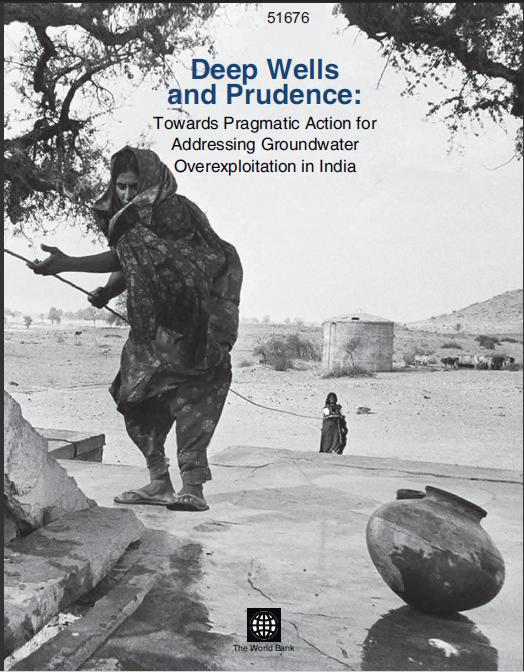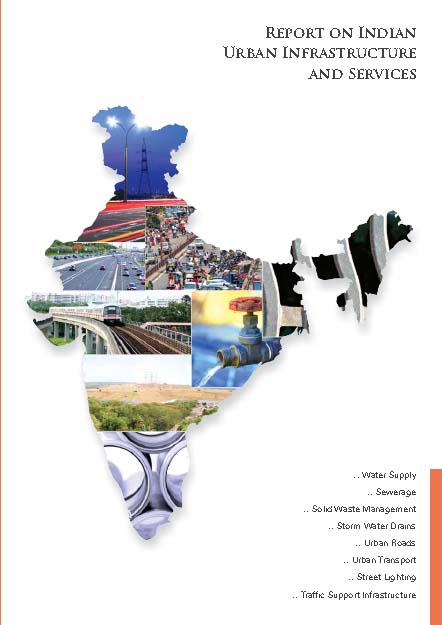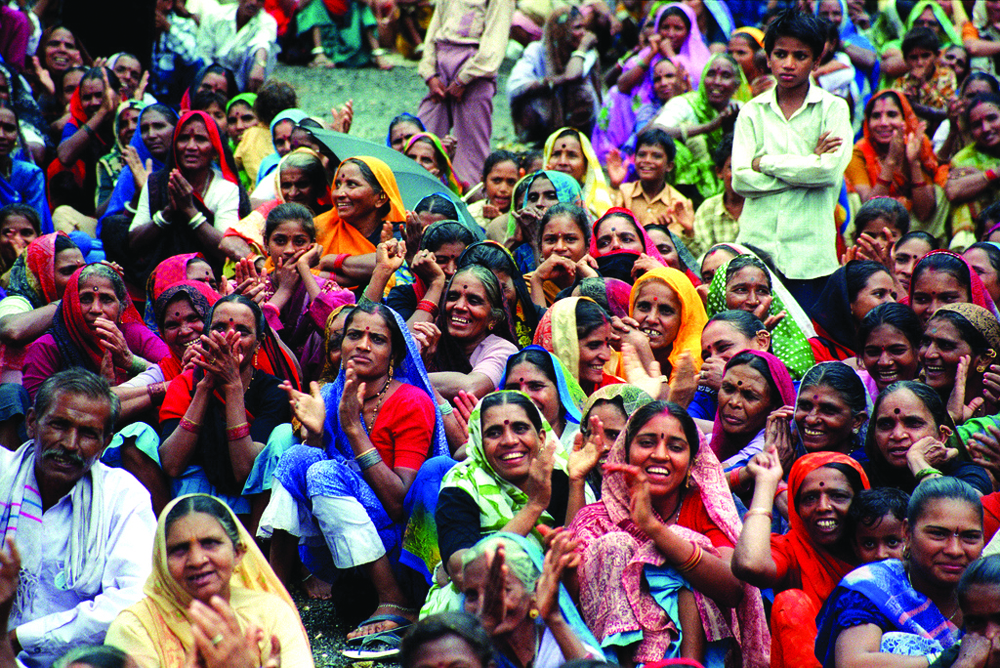/topics/citizens-rights-and-duties
Citizens' Rights and Duties
NREGA poster boy in Chattisgarh struggling for late payment compensation - Audio update from CGNet Swara
Posted on 12 Apr, 2011 06:49 PMBut as you may recall as it was reported before on this forum that his son died in need of attention when he was still struggling to get his wages.
Deep wells and prudence - Towards pragmatic action for addressing groundwater overexploitation in India - A World Bank document (2010)
Posted on 12 Apr, 2011 01:51 AM India is the largest user of groundwater resources in the world. It is estimated that approximately 230 cubic kilometers per year is used annually, this is more than a quarter of the total world consumption from this resource.
India is the largest user of groundwater resources in the world. It is estimated that approximately 230 cubic kilometers per year is used annually, this is more than a quarter of the total world consumption from this resource.
It is in this context that this World Bank report looks at the reasons for this quantum of groundwater usage.
The report delves into socio-economic and political reasons and looks at policies which inadvertently promote so much extraction. The report also analyses various attempts to manage this resource. These attempts range from government and international agency efforts directed to grassroots mobilisations. Finally the report comes out with suggestions to deal with this crisis.
New policy framework for rural drinking water supply: Swajaldhara guidelines – An article by Philippe Cullet in Economic and Political Weekly
Posted on 11 Apr, 2011 07:09 PMIt examines its evolution from the 1970s onwards and focuses, in particular, on the reforms of the past decade, looking more specifically at the Swajaldhara Guidelines. These reforms are of capital importance because they seek to completely change the rural drinking water supply policy framework.
Role of civil society in sanitation improvement - A case-study from the work of Parivartan in Uttar Pradesh (2010)
Posted on 11 Apr, 2011 12:33 AMThis presentation prepared by the founders of Parivartan, a Kanpur based NGO, deals with the organisation's efforts to improve the sanitation system of the town by involving local citizenry.
Captain SC Tripathi, the founder of Parivartan explains that his organisation is based on a 'collective' model where in all aspects from ideation to implementation is a collective effort. This model seemed appropriate considering the different problems that Kanpur was facing ranging from sanitation issues to drainage, power outages etc. Added to this was political and official apathy, indifference and cynicism of citizenry.
A compilation of original articles on rivers, dams and water management initiatives,
Posted on 06 Apr, 2011 04:57 PMProfile of GUARDIAN microfinance institution
Posted on 31 Mar, 2011 02:19 PMGramalaya Urban And Rural Development Initiatives And Network (GUARDIAN) is a micro finance institution (MFI) and a not for profit institution with no capital, registered under Sec.
Estimating the investment requirements for urban infrastructure services – Report of the High Powered Expert Committee (HPEC)
Posted on 22 Mar, 2011 09:13 AM This report on Indian urban infrastructure and services is an outcome of the High Powered Expert Committee (HPEC) chaired by Isher Judge Ahluwalia set up by the Ministry of Urban Development in May, 2008 for estimating the investment requirement for urban infrastructure services. It is an inevitable outcome of the faster rates of growth to which the economy has now transited. Indeed, urbanisation is itself a process that will support growth. The Committee has made recommendations on how to deal with these challenges of urbanisation.
This report on Indian urban infrastructure and services is an outcome of the High Powered Expert Committee (HPEC) chaired by Isher Judge Ahluwalia set up by the Ministry of Urban Development in May, 2008 for estimating the investment requirement for urban infrastructure services. It is an inevitable outcome of the faster rates of growth to which the economy has now transited. Indeed, urbanisation is itself a process that will support growth. The Committee has made recommendations on how to deal with these challenges of urbanisation.
The Committee has held several meetings with officials from the Government of India, state governments and local governments and also met with academicians and other stakeholders such as Asian Development Bank with interest and expertise in Indian urban issues.
The report argues that the challenge of managing urbanisation will have to be addressed through a combination of increased investment, strengthening the framework for governance and financing, and a comprehensive capacity building programme at all levels of government. The Committee has projected very large investment requirements for providing public services to specified norms and also supporting the growth process. The challenge of financing these investments is inextricably linked with the challenge of governing the cities and towns of India.
Water and culture vis-à-vis river diversions - Paper presented at the National Seminar on Water and Culture (2007)
Posted on 14 Feb, 2011 04:48 AMThis paper discusses river linking, as a part of an ancient tradition, and suggests how NGOs can play a role in this attempt. The example of the Koyna dam is taken, and the effective handling of the technical and human angle of the dams construction is detailed through in-depth study and detailed field visits.
Participatory Irrigation Management (PIM) in Andhra Pradesh - An overview - Paper presented at the National Seminar on Water and Culture (2007)
Posted on 14 Feb, 2011 02:57 AMThis paper describes a PIM initiative undertaken by the Government of Andhra Pradesh. The need for PIM in Andhra Pradesh, was felt because farmers, especially those in the lower reaches of the command area of the project, suffer from inadequate and unreliable supplies.






